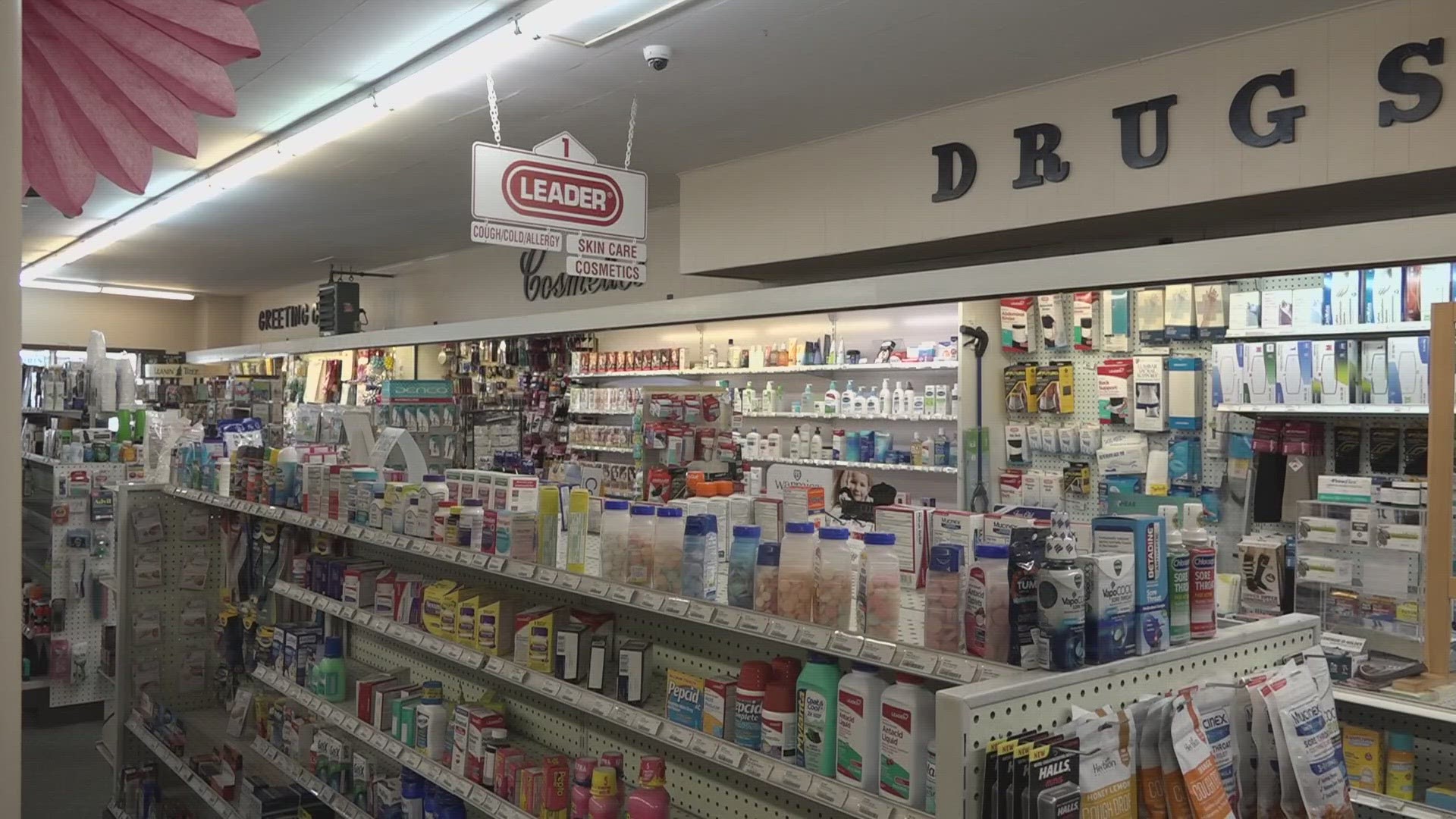GREENVILLE, Maine — Access to pharmacies among rural communities in our state is becoming a persistent challenge.
In western Maine, a planned closing of the Guilford Walgreens will leave a vast area under the care of one small pharmacy, Harris Drug Store, in Greenville.
“We are the only pharmacy within a half an hour of here,” Jennifer Young, a pharmacy technician, said on Monday.
According to Young, patients drive more than an hour to pick up their prescriptions from the pharmacist in charge, Michael Harris, who says providing coverage for communities in the remote Maine highlands can be difficult.
“It is a challenge for them and a challenge for me to be able to serve all these people and provide these services,” Harris said.
This issue of too few pharmacies in sparsely populated rural areas is not unique to Maine.
According to a study from the University of Iowa published last year, the number of independent pharmacies in rural areas has dropped by 16.1 percent between 2003 and 2021. Meanwhile, the number of independent drug stores in urban areas has grown in that same time.
To Young, the impact of this data underscores an important reality.
“The fact that we are in a rural area… makes it essential that we stay open.”
But open and accessible are two different things. Many customers of Harris Drug Store choose to order their medications by mail—a practice that has surged in popularity since the COVID-19 pandemic. But while convenient, Young and Harris say patients have struggled with it and that pills by mail don’t come with a pharmacist to answer questions and explain directions.
As Young puts it, “They enjoy the personal contact they have with actually seeing their pharmacist and the pharmacy staff to get their questions answered.”
But for now, it’s a solution that will have to do for many households who can’t drive great distances for medication.

